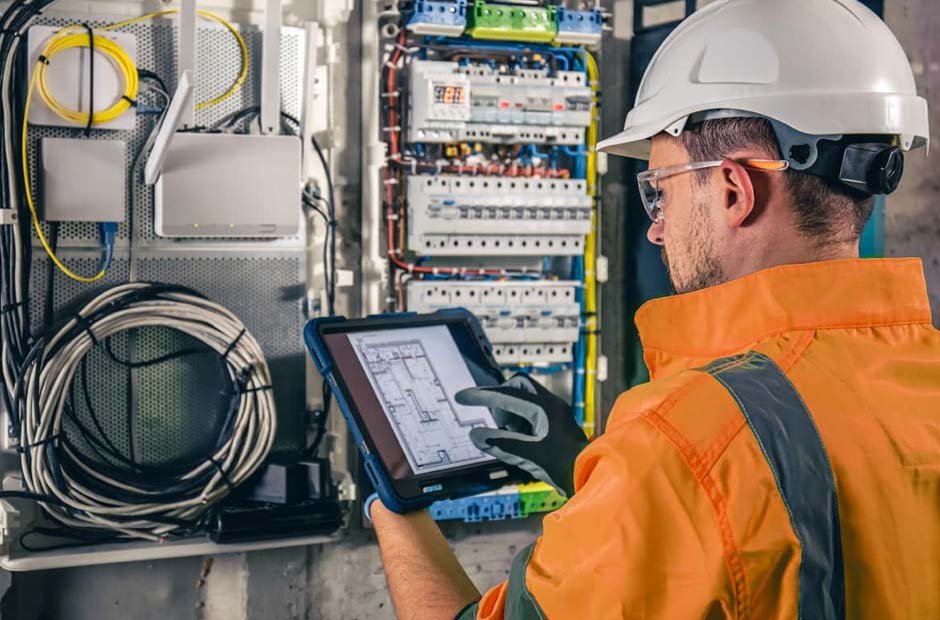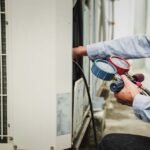Electrical systems are a critical component of modern homes and businesses, providing the power needed for lighting, appliances, heating, and cooling. Despite their importance, these systems are often overlooked until a problem arises. Regular electrical maintenance services are essential for ensuring safety, preventing costly repairs, and maintaining efficient operation. We will explore the importance of regular electrical maintenance, its benefits, and the key tasks involved. Understanding these aspects will help homeowners and businesses prioritize electrical maintenance and enjoy the long-term benefits of a reliable and safe electrical system. For those in the region, services provided by the Oklahoma City office ensure local expertise and timely assistance.
Enhancing Safety and Preventing Hazards
One primary reason for regular electrical maintenance is to enhance safety and prevent potential hazards. Faulty wiring, overloaded circuits, and outdated electrical panels can pose significant risks, including electrical fires and electric shocks. According to the National Fire Protection Association (NFPA), electrical failures or malfunctions are a leading cause of house fires. Regular maintenance allows electricians to identify and address issues before they become dangerous.
During a maintenance visit, an electrician will thoroughly inspect the entire electrical system, checking for signs of wear and tear, corrosion, and other potential hazards. This includes examining wiring, outlets, switches, circuit breakers, and the electrical panel. They will ensure that all components are in good condition and functioning properly. Identifying issues such as frayed wires, loose connections, or outdated components early can prevent more serious problems and enhance the overall safety of the home or business.
Moreover, regular maintenance can include updating older systems to comply with current safety standards and building codes. This is especially important for older homes and buildings that may need to meet modern safety requirements. Upgrading the electrical system can reduce the risk of electrical fires and improve overall safety, providing peace of mind for property owners.
Improving Energy Efficiency
Regular electrical maintenance can also improve energy efficiency. An inefficient electrical system can lead to higher energy consumption and utility bills. Issues such as outdated wiring, poor insulation, and faulty appliances can cause the system to work harder than necessary, consuming more power. Electricians can identify these inefficiencies during maintenance and recommend upgrades or repairs to improve the system’s performance.
For instance, replacing old, inefficient wiring with modern alternatives can reduce energy loss and lower electricity bills. Upgrading to energy-efficient lighting and appliances can also make a significant difference. Electricians can suggest energy-saving solutions, such as installing programmable thermostats, smart meters, and energy-efficient light fixtures, further enhancing energy efficiency.
Additionally, regular maintenance helps ensure the electrical system is not wasting energy due to hidden issues. For example, detecting and repairing minor electrical leaks can prevent energy loss and save money over time. By optimizing the electrical system’s efficiency, homeowners and businesses can reduce their environmental impact and enjoy long-term cost savings.
Extending the Lifespan of Electrical Components
Another important benefit of regular electrical maintenance is the potential to extend the lifespan of electrical components. Electrical systems and appliances have a finite lifespan, and regular maintenance can help maximize their longevity. Maintenance allows electricians to identify components nearing the end of their useful life and replace them before they fail, preventing unexpected breakdowns and costly repairs.
For example, circuit breakers and fuses can wear out over time, losing their ability to protect the system from overloads. Regular maintenance can identify when these components need to be replaced, ensuring the system remains protected. Similarly, electrical outlets, switches, and wiring can degrade due to age and usage. Replacing worn-out components can prevent malfunctions and extend the overall lifespan of the electrical system.
Regular maintenance also provides an opportunity to upgrade outdated electrical panels and systems. Older homes, in particular, may have electrical systems that are not designed to handle the demands of modern appliances and technology. Upgrading these systems during a maintenance visit can prevent future issues and ensure the home’s electrical infrastructure can support current and future needs.
Key Electrical Maintenance Tasks
Regular electrical maintenance involves several key tasks to ensure the system’s safety and functionality. One of the most important tasks is inspecting and testing the electrical panel. The panel, also known as the breaker box, houses circuit breakers that control the flow of electricity throughout the home. Inspectors check for signs of wear, corrosion, and proper labeling and ensure the panel is adequately sized for the home’s electrical needs.
Wiring is another critical component inspected during maintenance. Electricians look for frayed or damaged wires, loose connections, and outdated wiring types, such as knob-and-tube or aluminum wiring, which can pose safety risks. They also check for proper insulation and secure mounting to prevent electrical hazards.
Outlets and switches are inspected for wear, damage, and proper grounding. Electricians test outlets to ensure they function correctly and check for issues such as reversed polarity or loose connections. Ground Fault Circuit Interrupter (GFCI) outlets, required in wet areas like kitchens and bathrooms, are also tested to ensure adequate protection against electrical shocks.
Lighting fixtures and electrical appliances are examined to ensure they are in good working condition and do not overload the system. Inspectors check for proper wattage and secure connections and may recommend replacing outdated or inefficient fixtures with modern, energy-saving alternatives.
In addition to these components, electricians inspect smoke detectors, carbon monoxide detectors, and other safety devices to ensure they function correctly. These devices are crucial for home safety, providing early warnings in case of fire or gas leaks.
Conclusion
Regular electrical maintenance services ensure the safety, efficiency, and longevity of a home or business’s electrical system. These services enhance safety by identifying and addressing potential hazards, improving energy efficiency, and extending the lifespan of electrical components. Electricians ensure that the system is in good condition and compliant with safety standards by performing key maintenance tasks such as inspecting and testing the electrical panel, wiring, outlets, switches, and lighting fixtures. Homeowners and businesses prioritizing regular electrical maintenance can enjoy peace of mind, knowing that their electrical system is safe, efficient, and reliable. Regular maintenance is a smart decision that protects the property and its occupants.
















